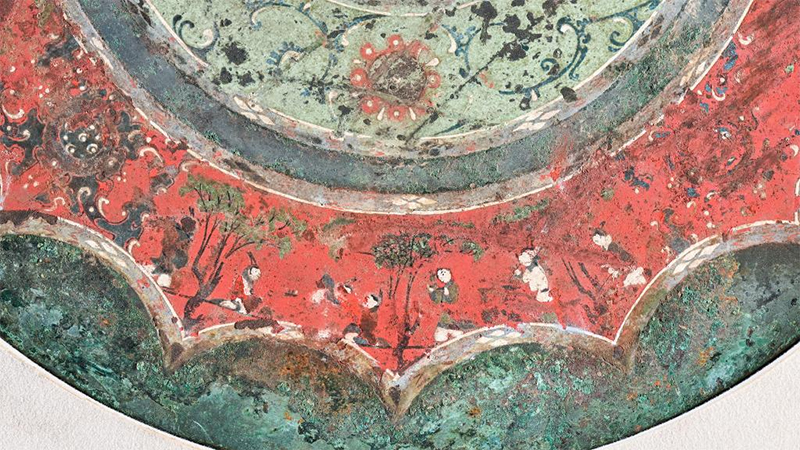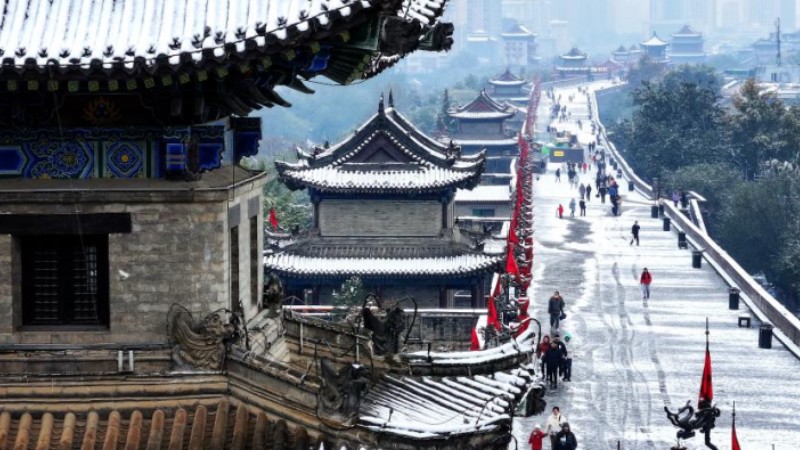A better world entails more engaged dialogue of civilizations, but how?
There is no more important topic than "dialogue of civilizations." I think of it as discussing the world we wish to inhabit, the world we wish to create for ourselves, our children, our grandchildren and all future generations. What could be more important than that?
I regard the Chinese insistence on collective focus on this issue -- that of what kind of world we wish to create, as exactly the right one. I admire the Chinese effort to define what they see as the future of this Earth and of mankind. I find it even inspirational.
I believe the Chinese invitation to the rest of the world to engage in a "dialogue of civilizations" is also exactly the right spirit in which to pursue the answer to the question. In fact I can think of no other way to do so. Who is against a harmonious, peaceful, secure world? No serious, thoughtful person.
But I think we will face a prolonged period in which one will need to build global consensus for the idea not because people will disagree with it in principle, but because they will see it as either too unrealistic or too idealistic or simply too difficult to achieve.
But, that reality in no way dissuades me from thinking we are pursuing the right path, indeed the essential path for the future of the world. I am simply highlighting the level of difficulty in achieving the goal.
I will now give you a few thoughts related to the execution of the core idea -- that of a "dialogue of civilizations" to define and create the world in which we all wish to live, a future of peace, prosperity and security for all mankind.
The single, most important immediate goal must be to communicate within and among people throughout the world.
In 2001, the United Nations (UN) proclaimed that year as the "UN Year of Dialogue among Civilizations." Actually, I think almost no one in the world knew then that the UN had made such a proclamation, and I doubt that anyone today remembers it.
I highlight this simply to say that we must not underestimate the time, energy and determination this effort will take -- including the initial task of communication.
As of now, the English language dominates the global communication channels. Many of those in the world who must be a part of the "dialogue of civilizations" do not speak English and are almost entirely absent from the English language global communication channels. The Chinese are a perfect example of this. Even though the Chinese government and the best Chinese thinkers publish many high quality papers and speeches and thought pieces, almost none of it appears in the English language communication channels. This must change. Otherwise, we do not have a dialogue. We have a monologue.
To take this point of communication one step further, I want to mention an American pollster named Frank Luntz. Luntz recently completed a survey and a few focus groups of ordinary Americans on their attitudes toward China, US-China relations, the Chinese people and related topics.
Even in today's highly toxic political world, he learned a few very interesting things. One finding was that ordinary Americans like the Chinese people. Another thing he learned was that ordinary Americans value Chinese culture and traditions. A third interesting point that emerged from his survey was that ordinary Americans think that the United States and China can make common cause providing safety and security to the world.
And, finally, a fourth important conclusion was this: The most important reason for a good U.S.-China relationship is that it is good for global relations between countries. That reason was twice as popular as the reason that a good U.S.-China relationship is good for the American consumer.
But, and here is where it gets fascinating and extremely relevant to our topic.
Luntz surveyed ordinary Americans on what they thought of the term "win-win" when used to describe U.S.-China relations. He learned that ordinary Americans prefer "mutual benefit" to "win-win," the latter of which they find disingenuous and ambiguous. Therefore, Luntz advised my senior Chinese friends to use the term "mutual benefit" just like they use the term "mutual respect." I go into this level of detail to illustrate how vital it is to communicate in ways that are heard.
I will also make three observations that everyone here knows, but need acknowledging.
First, in the West, in particular in the United States, in the past three decades there have been three books that are widely regarded as among the most important books on geopolitics in the post-Cold War era. The three are Francis Fukyama's "The End of History" (1992), Samuel Huntington's "The Clash of Civilizations" (1996), and John Mearsheimer's "The Tragedy of Great Power Politics" (2001).
All three should be read and understood. They more or less define what passes for insight and wisdom in our society and to that extent will help anyone from outside the United States get a sense of how much of the foreign policy elite think, or, at a minimum, outline the core arguments that are dominating the thinking now in the United States and much of the West.
Second, all over much of the world and most certainly in the United States, ordinary people are angry at the elites. This includes, prominently, the fact that the sons and daughters of ordinary Americans are the ones who are asked by the elites (leaders) to fight in wars that often make no sense to ordinary Americans. And it is their sons and daughters and their families and communities which suffer the consequences. Recently, this dynamic has taken an even worse, darker turn insofar as former U.S. President Donald Trump is now telling his followers that he is "your retribution."
Based on the latest polls which show Trump ahead of President Joe Biden in five of the six so-called swing states which will likely determine the result of the election, the former president's "I am your retribution" narrative appears to be a compelling and motivational one. And, what is most fascinating is that the former president does better in relation to Biden the more diverse the state, the precise opposite of what was the case in the 2020 election and what one would have expected based on decades of voter trends.
I mention this phenomenon because it seems to me that this puts the emphasis on any "dialogue of civilizations" on people-to-people communication. Ordinary people, at least in the United States, do not want an intermediary between them and whoever is communicating with them. Intermediaries have no credibility and are not trusted.
It also encourages Chinese leaders to communicate directly with ordinary Americans either through speeches, or interviews with serious journalists such as Fareed Zakaria, or otherwise. Deng Xiaoping and Jiang Zemin did this to good effect, and Xi Jinping has shown himself to be a natural communicator with ordinary Americans as he demonstrated in Iowa in 2011.
China could learn from what was suggested by Luntz. He said nothing beats seeing a place with one's own eyes and experiencing it personally, so he recommended a massive initiative with tourists. He said bring over as many American tourists as possible. That, he said, would have an incalculable impact. And knowing my fellow Americans, he is right.
Also, then there is this fundamental and very foundational point. It was made to me by Nobel Laureate economist Michael Spence. He thought that we should be conscious of the fact that a healthy global economy makes many things possible. One of those things is very likely a much healthier, more open, inclusive and engaged dialogue among civilizations. It was his way of saying that the leading countries of the world must not lose sight of the imperative of continuing to build a growing, interdependent global economy. In the absence of such an economy it is likely that admirable long-term goals such as this one fall by the wayside.
Editor's note: John L. Thornton is chair emeritus of the U.S. Brookings Institution.
The views expressed in this article are those of the author's and do not necessarily reflect the positions of Xinhua News Agency.
Photos
Related Stories
- Luban lock conveys Chinese wisdom at UN
- Five jurists elected judges of International Court of Justice
- Chinese envoy expresses hope for ICC to eschew double standards, exceptionalism
- Chinese envoy says maintaining peace, stability in Abyei top priority
- Chinese envoy calls on int'l community to form synergy for refugee relief
- Floods affect over 278,000 people in Somalia: UN
- Killing of children in Gaza not "collateral damage:" head of UN Agency for Palestine Refugees
- China's Blue Circle initiative wins UN highest environment award
- About 4 mln Somalis facing food crisis amid anticipated El Nino: UN
- UN General Assembly resumes emergency session on Israeli-Palestinian conflict
Copyright © 2023 People's Daily Online. All Rights Reserved.









